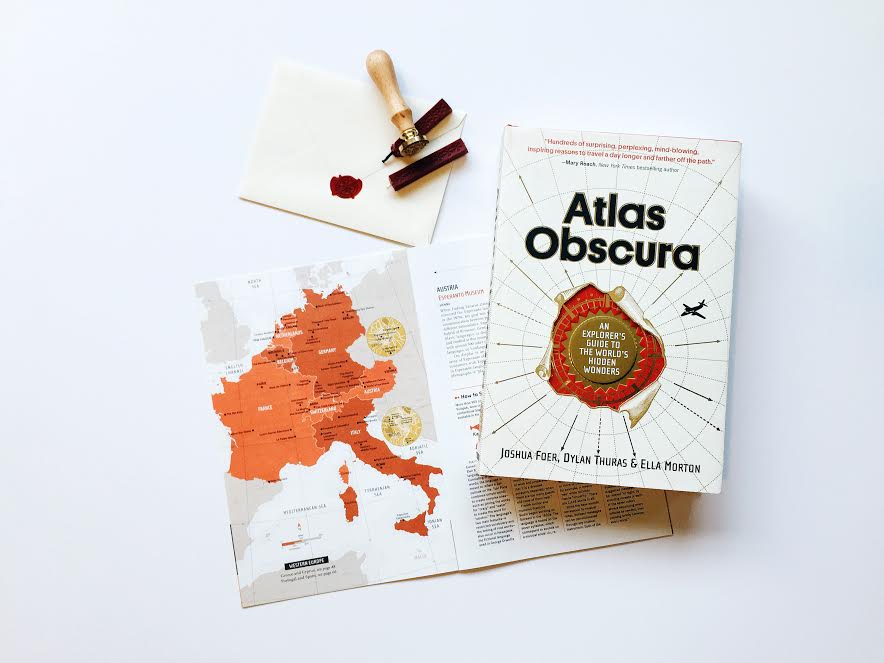The Weekender: July 15, 2016

1) “The 7 biggest problems facing science, according to 270 scientists” (Vox, 20 minutes, July 2016). All seven reasons are interesting, but as an explainer myself (I guess?), number six — “science is poorly communicated to the public ” — resonated with me.
Quite a few respondents in our survey expressed frustration at how science gets relayed to the public. They were distressed by the fact that so many laypeople hold on to completely unscientific ideas or have a crude view of how science works.
They griped that misinformed celebrities like Gwyneth Paltrow have an outsize influence over public perceptions about health and nutrition. (As the University of Alberta’s Timothy Caulfield once told us, “It’s incredible how much she is wrong about.”)
They have a point. Science journalism is often full of exaggerated, conflicting, or outright misleading claims. If you ever want to see a perfect example of this, check out “Kill or Cure,” a site where Paul Battley meticulously documents all the times the Daily Mail reported that various items — from antacids to yogurt — either cause cancer, prevent cancer, or sometimes do both.
2) Check this out: Atlas Obscura, the book. The writers at Atlas Obscura find the world’s most unusual and amazing places–everything from the New Zealand caves lit by glowworms to the secret apartment at the top of the Eiffel Tower. (And the fake town in New York; I know, because I wrote that one on their site.) Now they have a beautiful book coming out: Atlas Obscura: An Explorer’s Guide to the World’s Hidden Wonders, which includes descriptions, photos, graphics, and illustrations of more than 600 quirky, peculiar, wild, and wondrous places across the globe. It’s book that will delight any traveler you know and tickles your curiosity. It ships in September but you can pre-order it today.
3) “Survivorship Bias” (You Are Not So Smart, 27 minutes, May 2013). I’ve written about this before — here’s a Now I Know about survivorship bias — and the article linked uses that example. But it goes into all sorts of other directions, too. Here’s one that I never thought of.
It might seem disheartening, the fact that successful people probably owe more to luck than anything else, but only if you see luck as some sort of magic. Take off those superstitious goggles for a moment, and consider this: the latest psychological research indicates that luck is a long mislabeled phenomenon. It isn’t a force, or grace from the gods, or an enchantment from fairy folk, but the measurable output of a group of predictable behaviors. Randomness, chance, and the noisy chaos of reality may be mostly impossible to predict or tame, but luck is something else. According to psychologist Richard Wiseman, luck – bad or good – is just what you call the results of a human being consciously interacting with chance, and some people are better at interacting with chance than others.
Over the course of 10 years, Wiseman followed the lives of 400 subjects of all ages and professions. He found them after he placed ads in newspapers asking for people who thought of themselves as very lucky or very unlucky. He had them keep diaries and perform tests in addition to checking in on their lives with interviews and observations. In one study, he asked subjects to look through a newspaper and count the number of photographs inside. The people who labeled themselves as generally unlucky took about two minutes to complete the task. The people who considered themselves as generally lucky took an average of a few seconds. Wiseman had placed a block of text printed in giant, bold letters on the second page of the newspaper that read, “Stop counting. There are 43 photographs in this newspaper.” Deeper inside, he placed a second block of text just as big that read, “Stop counting, tell the experimenter you have seen this and win $250.” The people who believed they were unlucky usually missed both.
4) “Utopian for Beginners: An amateur linguist loses control of the language he invented” (New Yorker, 37 minutes, December 2012). I really don’t know how to describe this one. Basically: a guy — just a regular old guy who worked at the DMV — spent thirty years or so dreaming up a new language. He put the “textbook”-ish description of it on the web — and it became the talk of the linguistics world. It’s unfathomable. So, read it!
(Coincidentally — I realized this after selecting this item, promise — the author of this article is also an author of the Atlas Obscura book.)
WeekenderAdUnits
5) “An Oral History of the March on Washington” (Smithsonian Magazine, 25 minutes, July 2013). The March on Washington for Jobs and Freedom — which featured Martin Luther King, Jr.’s “I Have a Dream Speech” — was in the summer of 1963. Fifty years later, Smithsonian Magazine sat down to talk to some of the March’s participants.
6) “A League of Bartolo Colons” (Amazin’ Avenue, 14 minutes, July 2016). If you’re not a baseball fan, you can skip this one. If you are a baseball fan, you should have read it by now.
Have a great weekend!

